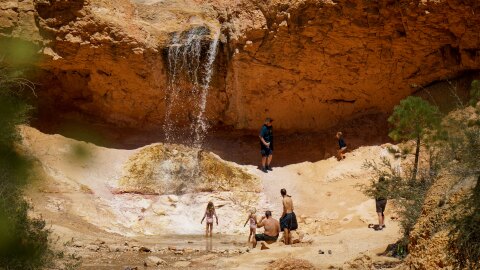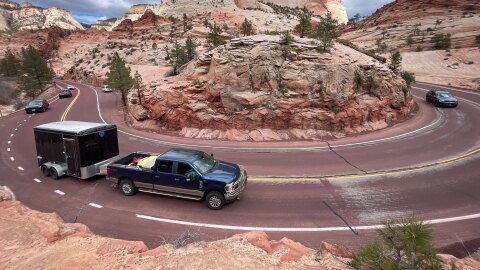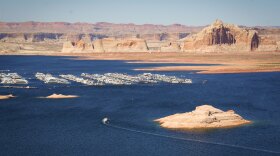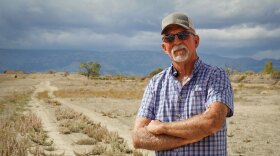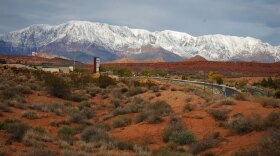-
Record 2025 temperatures show how climate change is affecting Utah, including the state’s water supply.
-
Tour buses, RVs and trailers that exceed size limits won’t be allowed on the Zion-Mt. Carmel Highway as of June 7.
-
Forecasting snow conditions in Utah’s mountains can be tricky, but accurate predictions are vital for everything from ski trips to avalanche safety. An AI forecast tool developed at the University of Utah might help.
-
Honey bees are considered domesticated livestock by the U.S. Department of Agriculture. Pollinators native to Utah, on the other hand, aren’t typically cared for by people.
-
The mountain goats took some time to warm up to their new neighbors, but now they’re getting along — and one even had a kid.
-
There’s been a noticeable lack of snow in northern Utah to start the winter season. But in the short term, Utah’s wildlife is taking advantage of the milder temperatures.
-
Water leaders in the U.S. West gathered this week in Las Vegas with a hefty task hanging over their heads — figuring out a long-term plan for sharing water from the Colorado River.
-
“We're closer to the edge of the cliff than we realize,” said one Colorado River expert who worked on a new report outlining what 2026 could hold for Utah’s Lake Powell.
-
The warm autumn put Salt Lake City on track for its second-warmest year on record. It’s running 3.3 degrees hotter than its historical average.
-
Projects across Utah’s Colorado River Basin meant to protect water supplies and restore rivers are in a holding pattern — including a $200 million reservoir near Price, Utah.
-
“We're just trying to be proactive,” said one Carbon County farmer. “Hopefully, we can make some kind of difference in the big picture.”
-
Northern Utah has a small fraction of the snowpack it typically has this time of year. That’s bad news for ski season and water supplies.
-
A House bill from the last legislative session required the Division of Air Quality to assess whether a Permit by Rule process could be applied to additional Utah industries to reduce lengthy approval times.
-
Around half of Utah’s counties have met their 2030 conservation goals. Taking a closer look at who is succeeding and struggling offers a glimpse of why it’s hard to save water in Utah.

